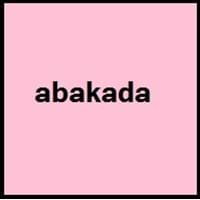Irish vs Tagalog
Countries
European Union, Ireland
Philippines
National Language
Ireland
Philippines
Second Language
Ireland
Filipinos
Speaking Continents
Europe
Asia, Australia
Minority Language
United Kingdom
Australia, Canada, Guam, Hong Kong, New Zealand, Singapore, United Kingdom
Regulated By
Foras na Gaeilge
Komisyon sa Wikang Filipino, National Languages Committee
Interesting Facts
- In Irish language, there are no exact words for "yes" or "no".
- There are different set of numbers for counting humans and another set for counting non-humans in Irish Language.
- In 1593, "Doctrina Christiana" was first book written in two versions of Tagalog.
- The name "Tagalog" means "native to" and "river". "Tagalog"is derived from taga ilog, which means "inhabitants of the river".
Similar To
Not Available
Filipino, Cebuano and Spanish Languages
Derived From
Not Available
Not Available
Alphabets in
Irish-Alphabets.jpg#200
Tagalog-Alphabets.jpg#200
Writing Direction
Left-To-Right, Horizontal
Left-To-Right, Horizontal
Thank You
Go raibh maith agat
Salamat po
How Are You?
Conas atá tú ?
Kamusta ka na?
Good Night
Oíche mhaith
Magandang gabi
Good Evening
Tráthnóna maith duit
Magandang gabi po
Good Afternoon
Tráthnóna maith duit
Magandang hapon po
Good Morning
Dia dhuit ar maidin
Magandang umaga po
Please
le do thoil
pakiusap
Sorry
Tá brón orm
pinagsisisihan
I Love You
Is breá liom thú
Iniibig kita
Excuse Me
Gabh mo leithscéal
Ipagpaumanhin ninyo ako
Dialect 1
Connacht Irish
Batangas Tagalog
Where They Speak
Connacht
Batangas, Gabon
Dialect 2
Munster Irish
Bisalog
Where They Speak
Munster
Philippines
Dialect 3
Ulster Irish
Filipino
Where They Speak
Ulster
Philippines
How Many People Speak
Not Available
Speaking Population
Not Available
Native Name
Gaeilge (na hÉireann) / An Ghaeilge
Tagalog
Alternative Names
Erse, Gaeilge, Gaelic Irish
Filipino, Pilipino
French Name
irlandais moyen
tagalog
German Name
Mittelirisch
Tagalog
Pronunciation
[ˈɡeːlʲɟə]
[tɐˈɡaːloɡ]
Ethnicity
Irish people
Tagalog people
Language Family
Indo-European Family
Austronesian Family
Subgroup
Celtic
Indonesian
Branch
Goidelic
Not Available
Early Forms
Primitive Irish, Old Irish, Middle Irish, Classical Irish, Irish
Proto-Philippine, Old Tagalog, Classical Tagalog, Tagalog
Standard Forms
An Caighdeán Oifigiúil
Filipino
Language Position
Not Available
Signed Forms
Irish Sign Language
Not Available
Scope
Individual
Individual
ISO 639 6
Not Available
Not Available
Glottocode
iris1253
taga1269
Linguasphere
50-AAA
31-CKA
Language Type
Living
Living
Language Linguistic Typology
Verb-Subject-Object
Object-Verb-Subject, Subject-Verb-Object, Verb-Object-Subject, Verb-Subject-Object
Language Morphological Typology
Fusional
Not Available
Irish and Tagalog Language History
Comparison of Irish vs Tagalog language history gives us differences between origin of Irish and Tagalog language. History of Irish language states that this language originated in c. 750 whereas history of Tagalog language states that this language originated in 1593. Family of the language also forms a part of history of that language. More on language families of these languages can be found out on Irish and Tagalog Language History.
Irish and Tagalog Greetings
People around the world use different languages to interact with each other. Even if we cannot communicate fluently in any language, it will always be beneficial to know about some of the common greetings or phrases from that language. This is where Irish and Tagalog greetings helps you to understand basic phrases in Irish and Tagalog language. Irish word for "Hello" is Dia dhuit or Tagalog word for "Thank You" is Salamat po. Find more of such common Irish Greetings and Tagalog Greetings. These greetings will help you to be more confident when conversing with natives that speak these languages.
Irish vs Tagalog Difficulty
The Irish vs Tagalog difficulty level basically depends on the number of Irish Alphabets and Tagalog Alphabets. Also the number of vowels and consonants in the language plays an important role in deciding the difficulty level of that language. The important points to be considered when we compare Irish and Tagalog are the origin, speaking countries, language family, different greetings, speaking population of these languages. Want to know in Irish and Tagalog, which language is harder to learn? Time required to learn Irish is 36 weeks while to learn Tagalog time required is 44 weeks.





